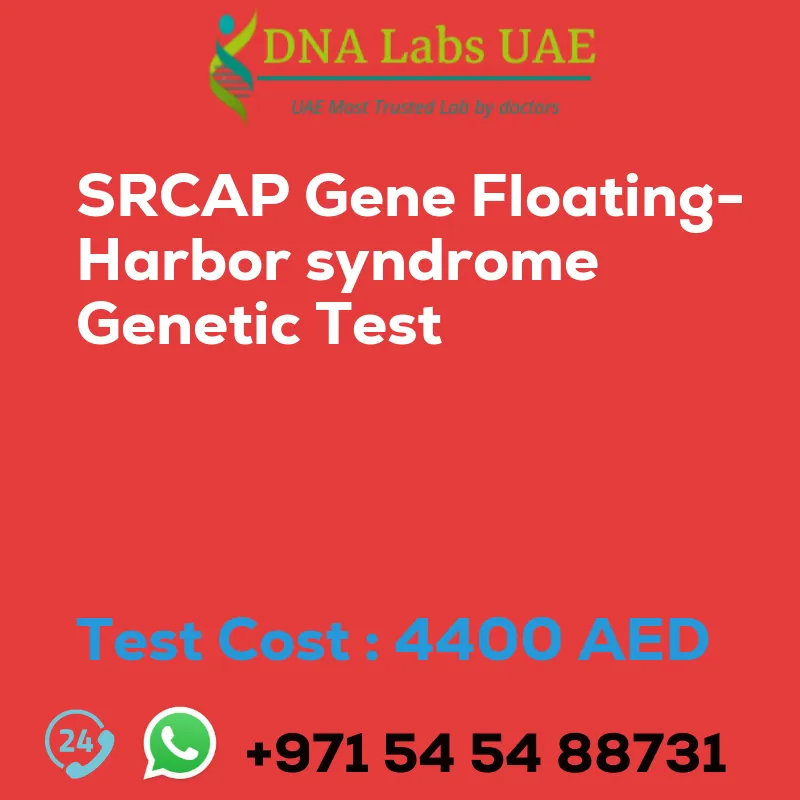SRCAP Gene Floating-Harbor syndrome Genetic Test
Introduction
Floating-Harbor syndrome (FHS) is a rare genetic disorder characterized by distinctive facial features, short stature, and delayed speech development. It is caused by mutations in the SRCAP gene, which is responsible for encoding a protein involved in chromatin remodeling.
Test Details
NGS (Next-Generation Sequencing) genetic testing is a method used to analyze multiple genes simultaneously, allowing for the identification of genetic mutations or variations associated with specific conditions. In the case of Floating-Harbor syndrome, NGS genetic testing can be used to detect mutations in the SRCAP gene, confirming the diagnosis of FHS.
NGS testing involves sequencing the DNA of an individual, which can be obtained through a blood sample or other biological samples. The DNA is then analyzed using advanced sequencing technologies to identify any genetic variations or mutations. This information can help healthcare professionals make an accurate diagnosis and provide appropriate management and treatment options for individuals with Floating-Harbor syndrome.
Test Components and Price
The SRCAP Gene Floating-Harbor syndrome Genetic Test costs 4400.0 AED. The test requires a sample condition of either blood, extracted DNA, or one drop of blood on an FTA card.
Report Delivery and Method
The report for the SRCAP Gene Floating-Harbor syndrome Genetic Test is delivered within 3 to 4 weeks. The test is conducted using NGS (Next-Generation Sequencing) technology.
Test Type and Doctor
The SRCAP Gene Floating-Harbor syndrome Genetic Test falls under the category of Osteology Dermatology Immunology Disorders. The test is conducted by a Dermatologist in the Genetics department.
Pre Test Information
Prior to undergoing the SRCAP Gene Floating-Harbor syndrome Genetic Test, it is important to provide the clinical history of the patient. Additionally, a Genetic Counselling session is recommended to draw a pedigree chart of family members affected by SRCAP Gene Floating-Harbor syndrome NGS Genetic DNA Test gene SRCAP.
Conclusion
The SRCAP Gene Floating-Harbor syndrome Genetic Test is a valuable tool for diagnosing Floating-Harbor syndrome. By detecting mutations in the SRCAP gene through NGS genetic testing, healthcare professionals can accurately diagnose individuals with FHS and provide appropriate management and treatment options.
| Test Name | SRCAP Gene Floating-Harbor syndrome Genetic Test |
|---|---|
| Components | |
| Price | 4400.0 AED |
| Sample Condition | Blood or Extracted DNA or One drop Blood on FTA Card |
| Report Delivery | 3 to 4 Weeks |
| Method | NGS Technology |
| Test type | Osteology Dermatology Immunology Disorders |
| Doctor | Dermatologist |
| Test Department: | Genetics |
| Pre Test Information | Clinical History of Patient who is going for SRCAP Gene Floating-Harbor syndrome NGS Genetic DNA Test. A Genetic Counselling session to draw a pedigree chart of family members affected with SRCAP Gene Floating-Harbor syndrome NGS Genetic DNA Test gene SRCAP |
| Test Details |
Floating-Harbor syndrome (FHS) is a rare genetic disorder characterized by distinctive facial features, short stature, and delayed speech development. It is caused by mutations in the SRCAP gene, which is responsible for encoding a protein involved in chromatin remodeling. NGS (Next-Generation Sequencing) genetic testing is a method used to analyze multiple genes simultaneously, allowing for the identification of genetic mutations or variations associated with specific conditions. In the case of Floating-Harbor syndrome, NGS genetic testing can be used to detect mutations in the SRCAP gene, confirming the diagnosis of FHS. NGS testing involves sequencing the DNA of an individual, which can be obtained through a blood sample or other biological samples. The DNA is then analyzed using advanced sequencing technologies to identify any genetic variations or mutations. This information can help healthcare professionals make an accurate diagnosis and provide appropriate management and treatment options for individuals with Floating-Harbor syndrome. |








